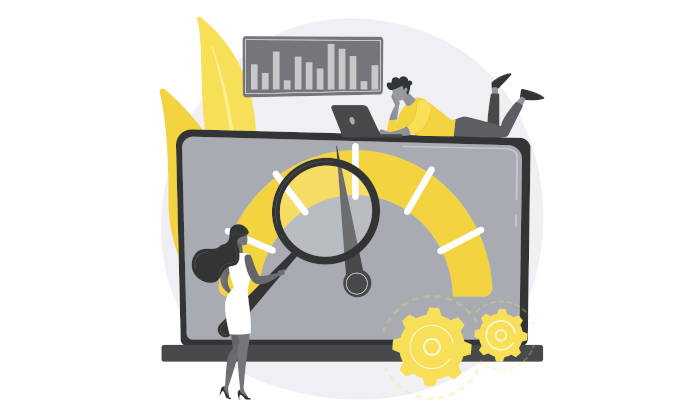GNOME Disks or simply, Disks, is the disk utility in GNOME. It provides a way to inspect, format, partition and configure disks and block devices. Disks can be used for partition management, S.M.A.R.T. monitoring, benchmarking, and software RAID.
Disks was previously known as GNOME Disk Utility or palimpsest, as well as DeviceKit-disks. DeviceKit-disks is part of DeviceKit which was planned to replace certain aspects of HAL. HAL and DeviceKit have both been deprecated.
Disks has been included in several Linux distributions including Debian, Ubuntu, Fedora, Red Hat Enterprise and CentOS.
Features include:
- View local and removable storage devices.
- View partitions and filesystems.
- Format disks and media:
- USB keys, card readers, flash media, disk drives.
- Support encryption to keep data private (e.g. LUKS or others).
- Modify disk partition layouts:
- Create/delete filesystems and partitions.
- Edit filesystems and partitions (resize, change label).
- Disk images:
- Create/restore disk images for disk/volumes.
- Access disk image files (including ISO files).
- Edit system configuration:
- Activate specific devices at OS start-up (fstab/crypttab).
- View hardware problems (SMART).
- Tasks are executed in the background, even after the application has been closed by the user.
Website: gitlab.gnome.org/GNOME/gnome-disk-utility
Support:
Developer: David Zeuthen with contributors
License: GNU General Public License v2.0
GNOME Disks is written in C. Learn C with our recommended free books and free tutorials.
Return to Partitioning Tools | Return to Benchmark Tools | Return to Flash OS Images
| Popular series | |
|---|---|
| The largest compilation of the best free and open source software in the universe. Each article is supplied with a legendary ratings chart helping you to make informed decisions. | |
| Hundreds of in-depth reviews offering our unbiased and expert opinion on software. We offer helpful and impartial information. | |
| The Big List of Active Linux Distros is a large compilation of actively developed Linux distributions. | |
| Replace proprietary software with open source alternatives: Google, Microsoft, Apple, Adobe, IBM, Autodesk, Oracle, Atlassian, Corel, Cisco, Intuit, and SAS. | |
| Awesome Free Linux Games Tools showcases a series of tools that making gaming on Linux a more pleasurable experience. This is a new series. | |
| Machine Learning explores practical applications of machine learning and deep learning from a Linux perspective. We've written reviews of more than 40 self-hosted apps. All are free and open source. | |
| New to Linux? Read our Linux for Starters series. We start right at the basics and teach you everything you need to know to get started with Linux. | |
| Alternatives to popular CLI tools showcases essential tools that are modern replacements for core Linux utilities. | |
| Essential Linux system tools focuses on small, indispensable utilities, useful for system administrators as well as regular users. | |
| Linux utilities to maximise your productivity. Small, indispensable tools, useful for anyone running a Linux machine. | |
| Surveys popular streaming services from a Linux perspective: Amazon Music Unlimited, Myuzi, Spotify, Deezer, Tidal. | |
| Saving Money with Linux looks at how you can reduce your energy bills running Linux. | |
| Home computers became commonplace in the 1980s. Emulate home computers including the Commodore 64, Amiga, Atari ST, ZX81, Amstrad CPC, and ZX Spectrum. | |
| Now and Then examines how promising open source software fared over the years. It can be a bumpy ride. | |
| Linux at Home looks at a range of home activities where Linux can play its part, making the most of our time at home, keeping active and engaged. | |
| Linux Candy reveals the lighter side of Linux. Have some fun and escape from the daily drudgery. | |
| Getting Started with Docker helps you master Docker, a set of platform as a service products that delivers software in packages called containers. | |
| Best Free Android Apps. We showcase free Android apps that are definitely worth downloading. There's a strict eligibility criteria for inclusion in this series. | |
| These best free books accelerate your learning of every programming language. Learn a new language today! | |
| These free tutorials offer the perfect tonic to our free programming books series. | |
| Linux Around The World showcases usergroups that are relevant to Linux enthusiasts. Great ways to meet up with fellow enthusiasts. | |
| Stars and Stripes is an occasional series looking at the impact of Linux in the USA. | |
